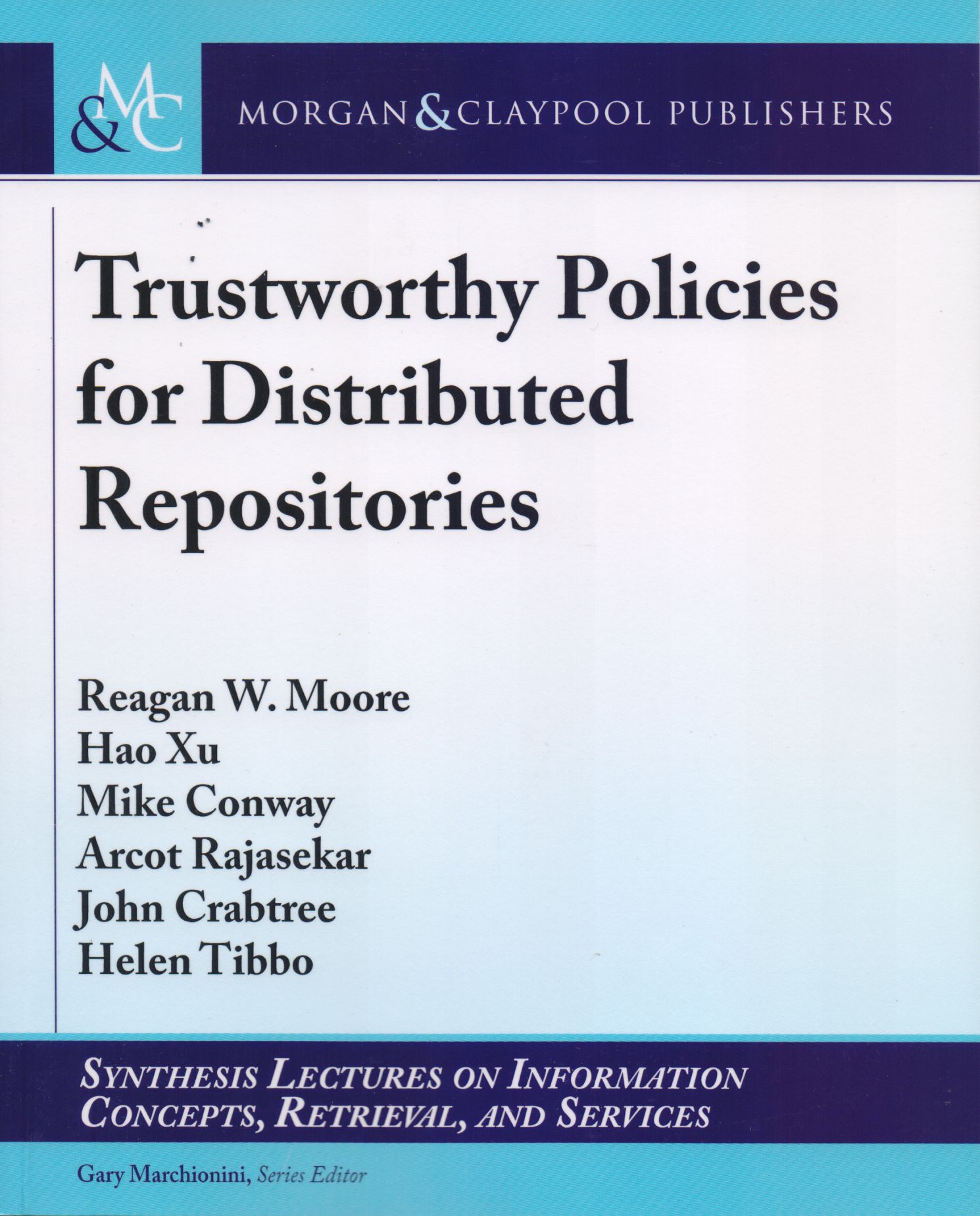Libros relacionados
 |
Engineering Principles In Everyday Life For Non-Engineers B. Niku, Saeed Morgan & Claypool Publishers |
 |
Database Anonymization: Privacy Models, Data Utility, And Microaggregation-Based Domingo-Ferrer, Josep / Sánchez, David / Soria-Comas, Jordi Morgan & Claypool Publishers |
 |
Dynamic Information Retrieval Modeling Hui Yang, Grace / Sloan, Marc / Wang, Jun Morgan & Claypool Publishers |
 |
Learning From Multiple Social Networks Nie, Liqiang / Song, Xuemeng / Chua, Tat-Seng Morgan & Claypool Publishers |
 |
Trustworthy Policies For Distributed Repositories W. Moore, Reagan / Xu, Hao / Conway, Mike / Rajasekar, Arcot Morgan & Claypool Publishers |
 |
Notion Of Relevance In Information Science, The: Eveybody Knows What Relevance I Saracevic, Tefko Morgan & Claypool Publishers |
 |
Semantic Interaction For Visual Analytics: Inferring Analytical Reasoning For Mo Endert, Alex Morgan & Claypool Publishers |


|
Título: Scholarly Collaboration On The Academic Social Web | |
| Autor: He, Daqing / Jeng, Wei | Precio: $1000.00 | |
| Editorial: Morgan & Claypool Publishers | Año: 2016 | |
| Tema: Informacion, Conceptos, Servicios | Edición: 1ª | |
| Sinopsis | ISBN: 9781627056533 | |
| .Collaboration among scholars has always been recognized as a fundamental feature of scientific discovery. The ever-increasing diversity among disciplines and complexity of research problems makes it even more compelling to collaborate in order to keep up with the fast pace of innovation and advance knowledge. Along with the rapidly developing Internet communication technologies and the increasing popularity of the social web, we have observed many important developments of scholarly collaboration on the academic social web.
In this book, we review the rapid transformation of scholarly collaboration on various academic social web platforms and examine how these platforms have facilitated academics throughout their research lifecycle - from forming ideas, collecting data, and authoring articles to disseminating findings. We refer to the term "academic social web platforms" in this book as a category of Web 2.0 tools or online platforms (such as CiteULike, Mendeley, Academia.edu, and ResearchGate) that enable and facilitate scholarly information exchange and participation. We will also examine scholarly collaboration behaviors including sharing academic resources, exchanging opinions, following each other's research, keeping up with current research trends, and, most importantly, building up their professional networks. Inspired by the model developed Olson et al. [2000] on factors for successful scientific collaboration, our examination of the status of scholarly collaboration on the academic social web has four emphases: technology readiness, coupling work, building common ground, and collaboration readiness. Finally, we talk about the insights and challenges of all these online scholarly collaboration activities imposed on the research communities who are engaging in supporting online scholarly collaboration |
||
Librería Bonilla SA de CV © Todos los derechos reservados. 2019
Última actualización: Jul 2019




